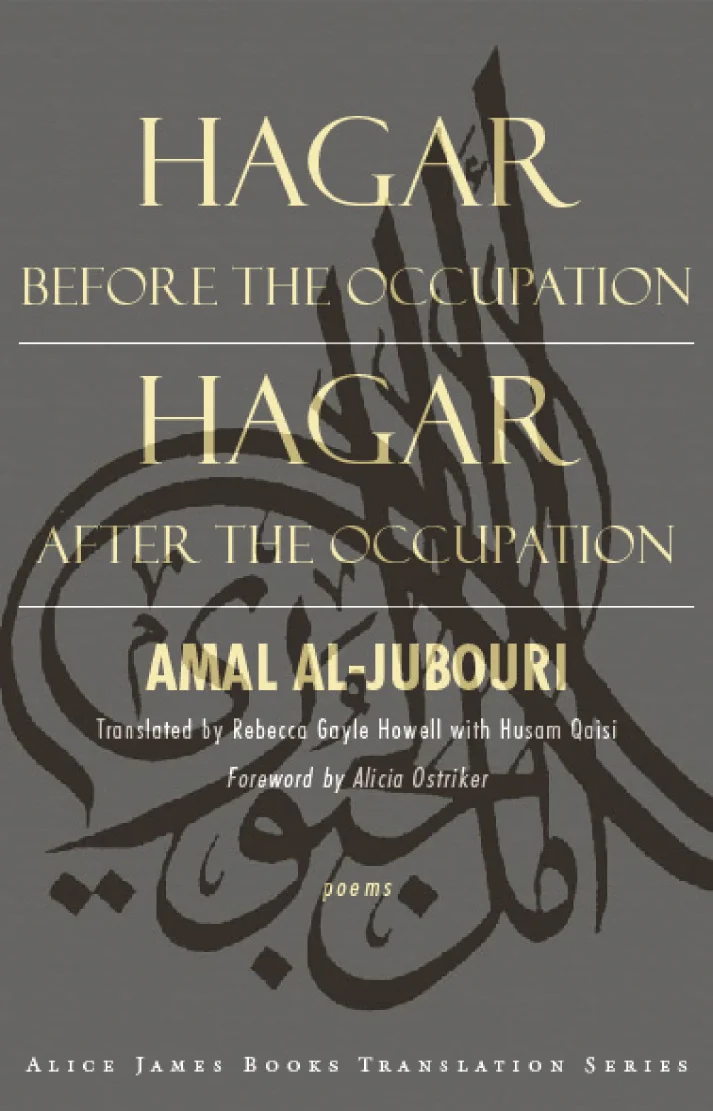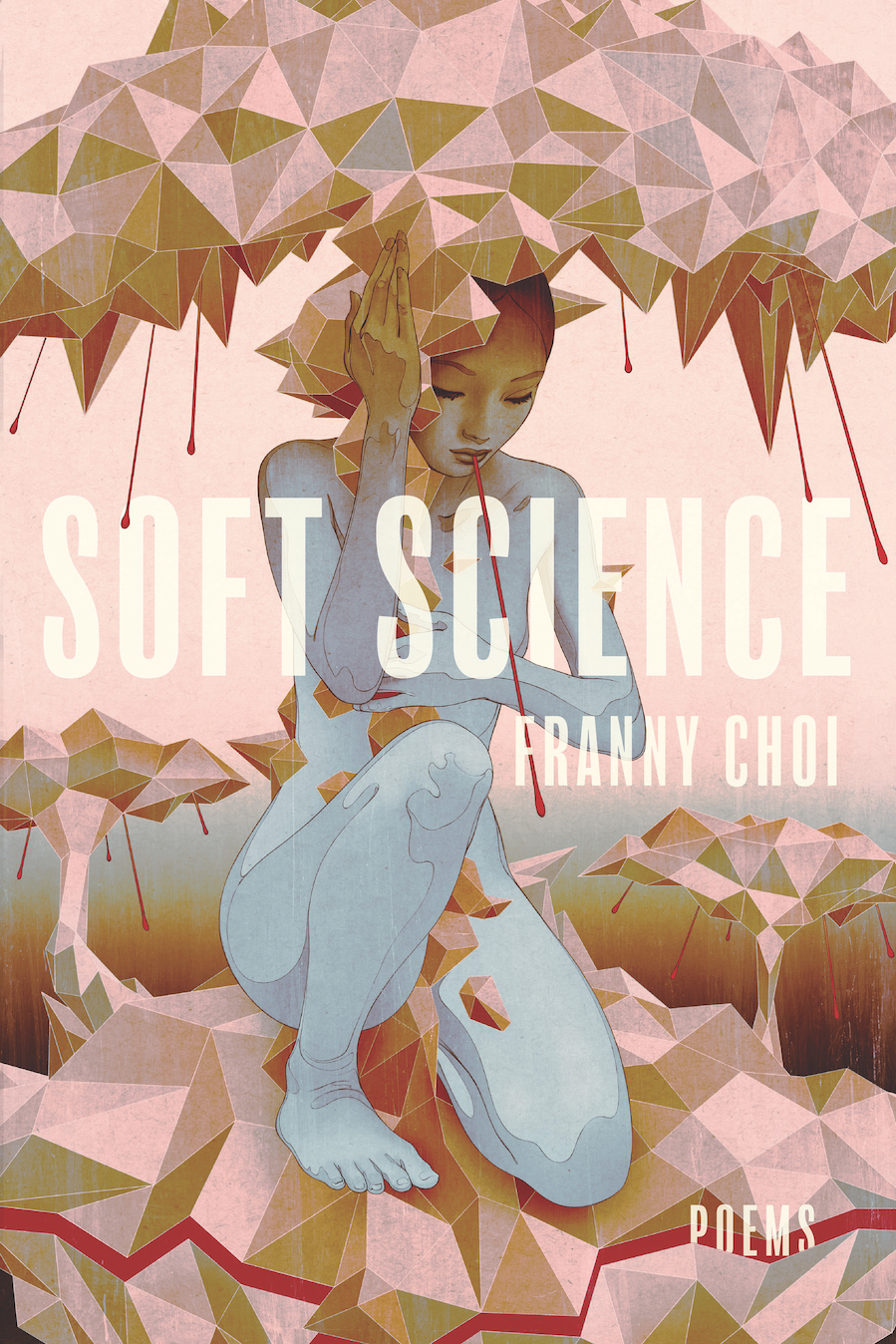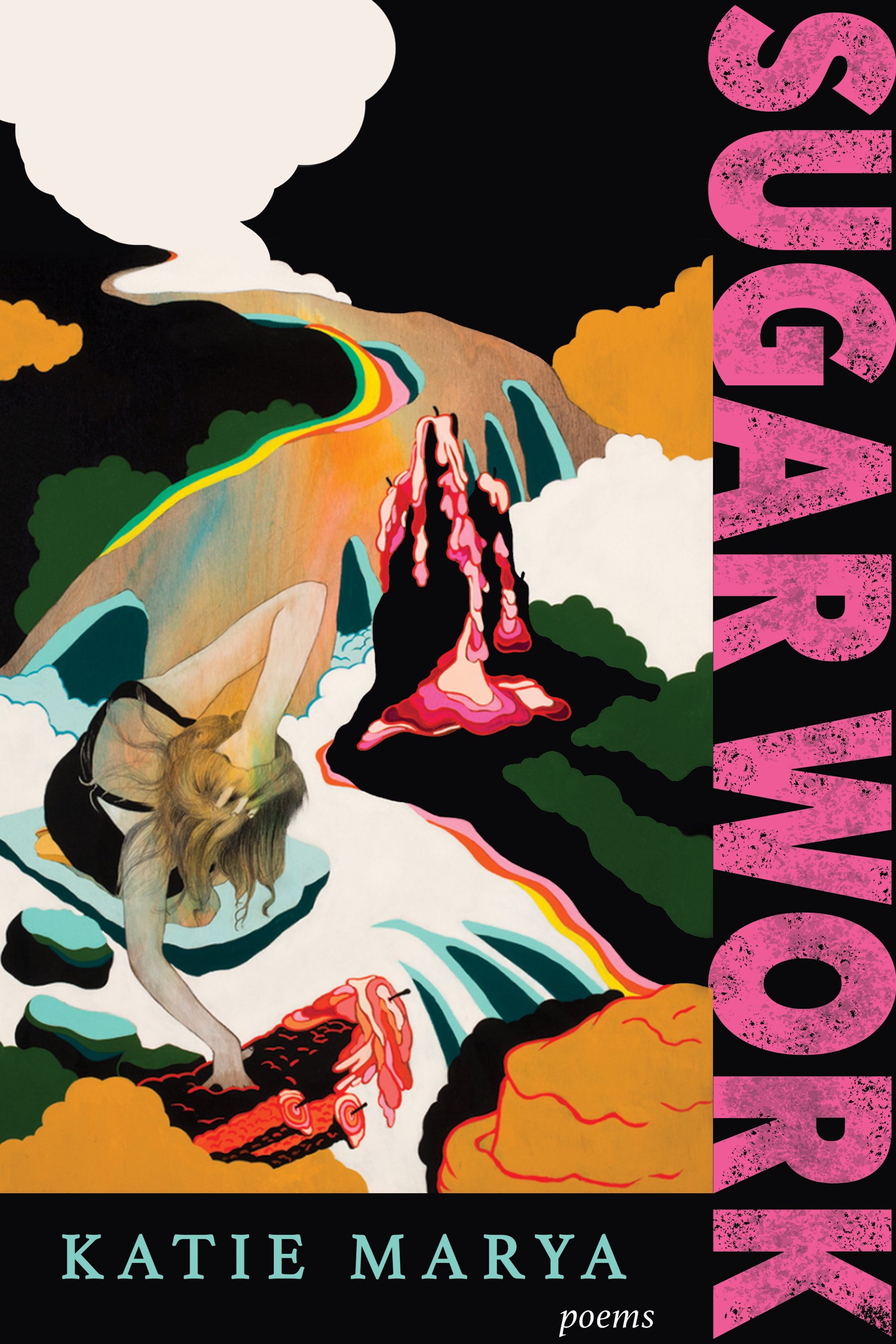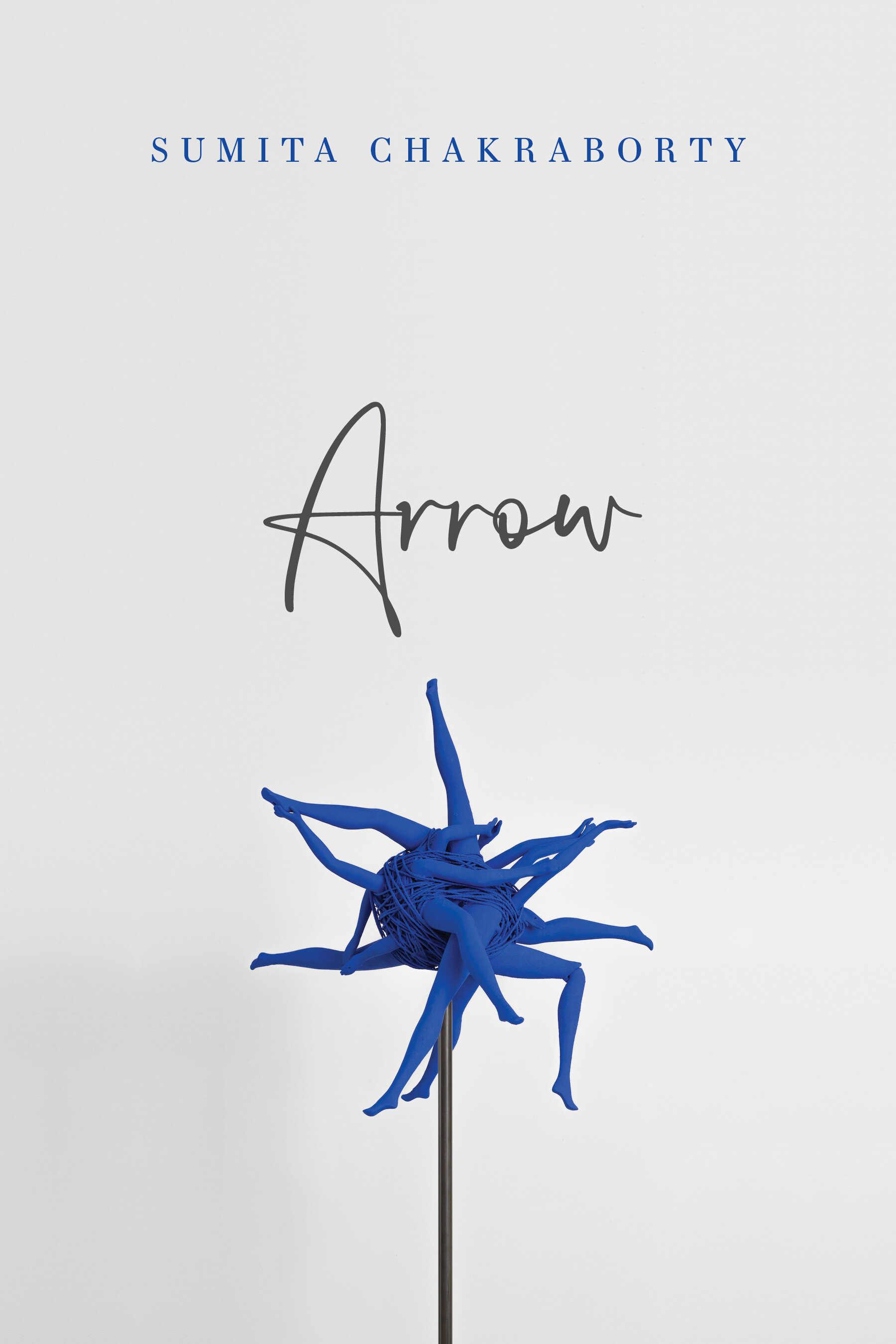Hagar Before the Occupation | Hagar After the Occupation
Hagar Before the Occupation | Hagar After the Occupation
Amal al-Jubouri
Translated by Rebecca Gayle Howell with Husam Qaisi
Foreword by Alicia Ostriker
Alice James Books Translation Series
Library Journal Best Books of 2011: Poetry
“In spare, vivid, and poundingly heartfelt language, [al-Jubouri] shows us her country before the occupation by U.S. troops and afterward . . . these poems have a timeless, haunting quality, and they offer not just enormous pleasure but understanding.”
—Library Journal, starred review
November 2011
ISBN: 9781882295890
Available in Print. Digital Format Coming Soon.
Amal al-Jubouri, a native of Iraq, is the author of five collections of poetry in Arabic, Wine from Wounds (1986), Words, Set Me Free! (1994), Enheduanna, Priestess of Exile (1999), 99 Veils (2003), and Hagar Before the Occupation, Hagar After the Occupation (2008). Also an active literary translator, she is the founder and editor of East West Publishing, a press with the mission to introduce works of international literature into the Iraqi literary scene. In 1997, she took refuge in Germany, but returned to live in Baghdad after the fall of the Ba'ath Party. Today she lives and writes in Berlin. For more information about Amal al-Jubouri please visit: www.amal-aljubouri.com
Rebecca Gayle Howell's most recent book is American Purgatory, selected by Don Share for Great Britain's 2016 Sexton Prize and named a must-read collection by Poetry London, The Millions, and the Courier-Journal. She is also the author of Render / An Apocalypse, which received wide critical acclaim, most notably by David L. Ulin for the Los Angeles Times who called it "remarkable." Howell's debut was as the translator of Amal al-Jubouri's Hagar Before the Occupation / Hagar After the Occupation, shortlisted for the Best Translated Book Award and selected by Library Journal as a best book of 2011. Among her other honors are fellowships from the Fine Arts Work Center in Provincetown and the Carson McCullers Center, as well as a Pushcart Prize. Howell is the Poetry Editor for Oxford American and serves as the James Still Writer-in-Residence at Hindman Settlement School in Knott County, Kentucky.
“This space is left empty to create a white space. To create a white separation block in these individual book pages, add a Quote Block”
Additional Praise:
“In a series of before-and-after poems, Amal al-Jubouri describes the changes in day-to-day action and mood in Baghdad and greater Iraq after the invasion by American forces and the fall of the Ba’ath Party in 2003. And she does this with much honesty and grace.”
—New Pages
“. . .al-Jubouri’s blistering book of poetry, Hagar Before The Occupation | Hagar After The Occupation . . . nominated for a 2012 Best Translated Book of the Year award in the US, shows us both how difficult and how vital it is to create poetry in disaster. ”
—Mint
“. . . this poetry inhales and exhales; breathes, thrives. . . . this work will live on. . . it will have a life of its own for decades to come. ”
—Hayden’s Ferry Review
“Hagar is much more a book about poetry as witness and response to war, violence, and suffering, and about the poet struggling with her chosen medium, than about registering a personal reaction to the American occupation. ”
—Asymptote
“In Hagar Before the Occupation / Hagar After the Occupation, we see how the political writes itself on everything that is personal—one’s speech and body, one’s sense of freedom and of love. Rebecca Gayle Howell’s translation, with Husam Qaisi, is stunning in how it creates a powerful, contemporary voice speaking to us directly with warmth and suffering, and yet also carries over the poems’ connection to Arabic literary traditions. The language of the poems marry present and past, which is a feat of translatorly skill and innovation.”
—Three Percent
“[Amal al-Jubouri] reaches deeper, into the body, the grave, into the freedom that gives us the power to make us choices, though, when squandered, changes the way we live. However, sometimes the lack of freedom gives us cause to speak out. . .”
—Barn Owl Review
“Through these poems, Amal al-Jubouri connects us to the earliest known poems, and yet the dialectic tension between them is utterly contemporary. Al-Jubouri writes “This is my protest, this is my folly,” yet these poems are neither simple protest nor in any sense folly. These poems are both essential and eternal.”
—Nick Flynn
“Amal al-Jubouri’s poems are essentially about exile, exile from the country of her youth, exile from peace, from love, from normalcy, from hope. They are courageous, honest, bitter, and beautiful. They are as ghosts, wandering over the rivers, looking for a home. I want to ask forgiveness of these ghosts. And rock them to sleep. I bless the Iraqi dead, as she does.”
—Gerald Stern
“Poet and translator Rebecca Howell, together with Husam Qaisi, has transported Amal al-Jubouri’s moving cri de coeur across the precarious bridge between Arabic and English as well as the cultural, political, and ethical chasm separating Iraq and the United States. This is poetry necessary to our times, and we owe the makers of this work in English an enormous debt of gratitude.”
—Carolyn Forché
“This space is left empty to create a white space. To create a white separation block in these individual book pages, add a Quote Block”
More by Amal al-Jubouri and Rebecca Gayle Howell:
“This space is left empty to create a white space. To create a white separation block in these individual book pages, add a Quote Block”
Featured:







